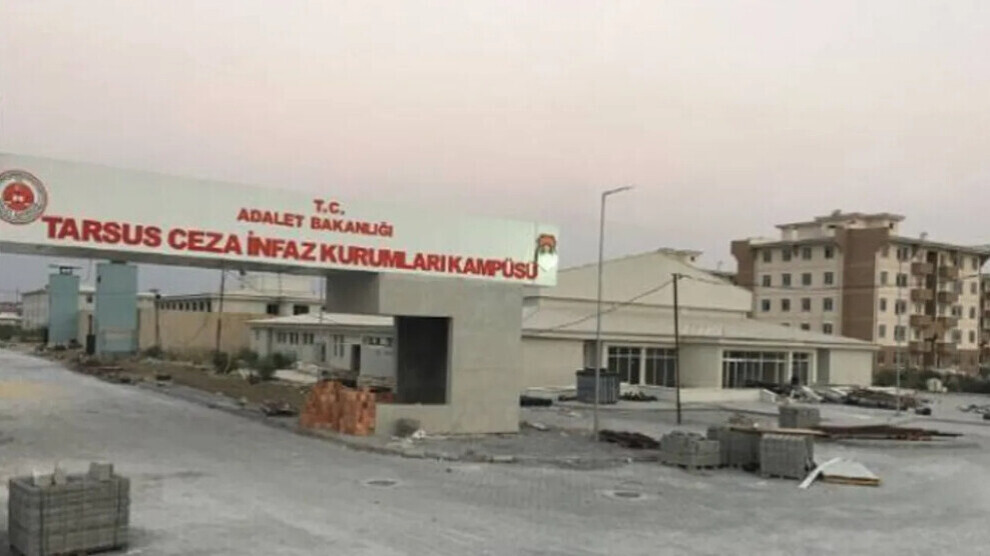Report exposes systematic rights violations of prisoners in Tarsus jail
A report by the Human Rights Association (IHD) and the legal association ÖHD exposed the systematic rights violations against prisoners in Tarsus Prison in Mersin.
A report by the Human Rights Association (IHD) and the legal association ÖHD exposed the systematic rights violations against prisoners in Tarsus Prison in Mersin.

Reports of rights violations against political prisoners in Turkish prisons are increasing every day. A report from Tarsus T-1 prison in Mersin province underlined several rights violations, among which are increased isolation and attempts to blackmail prisoners by suspending their release. The human rights association IHD and the legal association ÖHD have compiled information from relatives and prisoners about the situation in Tarsus jail.
Prisoners in isolation
The report said that political prisoners are isolated in their cells and have virtually no contact with other prisoners. They are only taken out of the block once a week to exercise; otherwise there are no social or cultural activities.
Too little food
The food supply is also inadequate, said the report, adding that the food provided is too little for the number of people in a cell block. In addition, there is a lack of variety and the food does not even contain the minimum amount of vitamins and minerals that are necessary for a normal diet. Cleaning supplies have to be purchased.
Visiting times for political prisoners shortened
Visiting hours are an important means of repression against prisoners. A closed visit can take place once a week, lasting 45 minutes, while open visits lasting 45 minutes are only allowed once a month. Prisoners can talk on the phone for ten minutes a week. Visiting hours for prisoners are one hour.
Letters are delayed
The report said letters could take up to 70 days to leave the prison. A letter written by political prisoner Mustafa Abi to prisoners in the women's jail had not arrived for three months. Many of the letters sent keep coming back. The costs of sending letters are very high. The authorities did not allow letters from several people to be sent to one address in a single envelope.
Political newspapers not allowed
Political prisoners are refused access to the left-wing newspaper Evrensel. Other daily newspapers always arrive late. Magazines are distributed arbitrarily by the prison authorities.
Blackmail attempts by the Executive Committee
It is also reported that the prison committee is trying to put pressure on prisoners who have completed their sentence. There are always questions about whether the prisoners will become politically active after their release. If the prisoners answered in the affirmative, they would be refused release.
Situation of ill prisoners increasingly difficult
The report said that despite requests, relatives of ill prisoners did not receive reports on the diagnoses of their relatives and doctors rarely visited political prisoners.
The case of Suphi Aydın was cited as an example in the report. He suffers from kidney failure, high blood pressure, prostate and heart disease, vascular blockages, low blood counts and faints from time to time. He has contacted the health committee three times, once the one in Tarsus and twice the one in Mersin, but neither he nor his family were given any reports. He has twice requested that the medical reports be handed over to his children, to no avail. His health is deteriorating, particularly because he cannot get enough water in prison and is not given the right medication.
The situation of prisoner Mustafa Abi is similar. He suffers from diabetes and stomach and intestinal problems. There are other ill prisoners in the same cell block. For both chronic and other illnesses, prisoners are denied treatment or only given limited treatment.